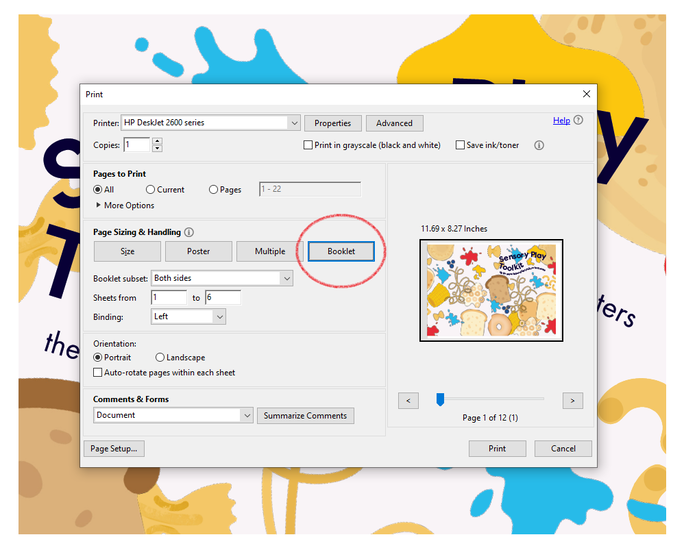THE SENSORY PLAY TOOLKIT
The fun way to help avoidant, picky or fussy eaters
The information on this page will tell you what the Sensory Play Toolkit is and who it's designed for, who has made it, and where can you access a copy for FREE.
About the Toolkit
What is it and who is it for?
What is it and who is it for?
The toolkit is a booklet with information, games, and ideas, which aims to help you increase your child’s confidence to try a few more foods - and to enjoy doing it - using sensory activities. It is aimed at children between 2-7 years. We believe in making eating a fun, rewarding activity.
We specialise in non-taste techniques; this means encouraging your child to interact with foods and food stimuli, but without the pressure to try them. This toolkit is for families who children who are avoidant, picky or fussy eaters. A lot of advice about eating is based on promoting healthy foods such as fruits and vegetables. For children who are currently refusing a lot of foods, focusing on fruits and vegetables and a ‘healthy’ diet may be unhelpful and unrealistic, and any pressurising can make the problem worse.
We wanted to devise a toolkit for parents to use with their child when they need a slower, gentler approach to helping their child try more foods.
At the beginning of the toolkit we ask you to think about your child and their behaviour and to write down some of this information; this is to help you understand how your child may react to the games. Then, we give you some ideas for sensory games and activities that you can play. The idea of these games is to gradually increase your child’s confidence with different sensory experiences.
When you and your child are ready, we have included a section towards the end of the toolkit that aims to help you when trying to introduce some new foods. The final part of the toolkit is a troubleshooting section, which includes some suggested tips and phrases to help with common questions and concerns.
We specialise in non-taste techniques; this means encouraging your child to interact with foods and food stimuli, but without the pressure to try them. This toolkit is for families who children who are avoidant, picky or fussy eaters. A lot of advice about eating is based on promoting healthy foods such as fruits and vegetables. For children who are currently refusing a lot of foods, focusing on fruits and vegetables and a ‘healthy’ diet may be unhelpful and unrealistic, and any pressurising can make the problem worse.
We wanted to devise a toolkit for parents to use with their child when they need a slower, gentler approach to helping their child try more foods.
At the beginning of the toolkit we ask you to think about your child and their behaviour and to write down some of this information; this is to help you understand how your child may react to the games. Then, we give you some ideas for sensory games and activities that you can play. The idea of these games is to gradually increase your child’s confidence with different sensory experiences.
When you and your child are ready, we have included a section towards the end of the toolkit that aims to help you when trying to introduce some new foods. The final part of the toolkit is a troubleshooting section, which includes some suggested tips and phrases to help with common questions and concerns.
Who has designed the Toolkit?
The Toolkit Developers
|
Dr Helen Coulthard
Helen is a Reader in Lifespan Eating Behaviour at De Montfort University. She has been carrying out research since 1998, mainly focusing on factors associated with fruit and vegetable consumption across the lifespan. She is particularly interested in individual characteristics that lead to food rejection such as food neophobia, disgust, sensory processing and anxiety. She has recently been developing interventions for children that are based on making fruits and vegetables fun and rewarding by using game-based strategies. These are often messy but work really well for developing children’s positive relationships with healthy foods. |
|
Dr Vicki Aldridge
Vicki is a Senior Lecturer in Psychology at De Montfort University. Her research interests include the development of eating behaviour and dietary change across the lifespan. She has a particular interest in problematic and disordered feeding behaviour in childhood, such as Avoidant/Restrictive Food Intake Disorder (ARFID), and the factors that might be associated with their development, maintenance, prevention and intervention. She is also interested in the physical, psychological, and social outcomes of different eating patterns. |
If you have any questions or queries relating to the Sensory Toolkit or its use or distribution, please contact the Toolkit developers using the 'Contact the Developers' option in the site menu, or click below.
Where can I access the Toolkit?
You can access a FREE downloadable version of the Sensory Play Toolkit to print and use straight away (printing information given below). To access the Toolkit, click on the link below or select ‘Access the Toolkit’ from the website menu. You can also follow this link to request a printed hard copy of the Toolkit. Due to current coronavirus-related restrictions there may be a delay in printing and postage of hard copies; however, you are free to download the Toolkit to have a look in the meantime.
You will be asked to complete a very small number of questions ahead of the download or hard copy request. No personal or identifiable information will be requested and the information that is requested is purely to help the developers gain an understanding of who is accessing/using the toolkit. All information is confidential and anonymous, and will be stored in accordance with data protection and the General Data Protection Regulation requirements.
You will be asked to complete a very small number of questions ahead of the download or hard copy request. No personal or identifiable information will be requested and the information that is requested is purely to help the developers gain an understanding of who is accessing/using the toolkit. All information is confidential and anonymous, and will be stored in accordance with data protection and the General Data Protection Regulation requirements.
Printing the Toolkit: We apologise for any difficulty that users may have experienced when trying to print the toolkit. The problem has now been fixed, so everyone should be able to access and print the Toolkit. To print the Toolkit as a booklet, open the pdf, click the printer icon, then select 'Booklet' from the printing options as shown below. If it is only possible to print single-sided on your printer, you can still print as a booklet by clicking 'Print' and then following the instructions on-screen.



